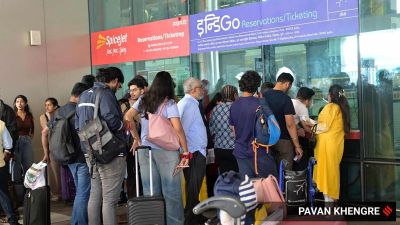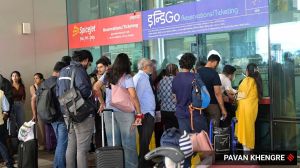Unification of India apart, Vallabhbhai Patel also had a role in drafting the Constitution
"..It means something and it is there because, for two hundred years, attempts have been made by foreign rulers to keep them in groups apart with their customs and other things in order that the foreigners' rule may be smooth. The rulers did not want that there should be any change."
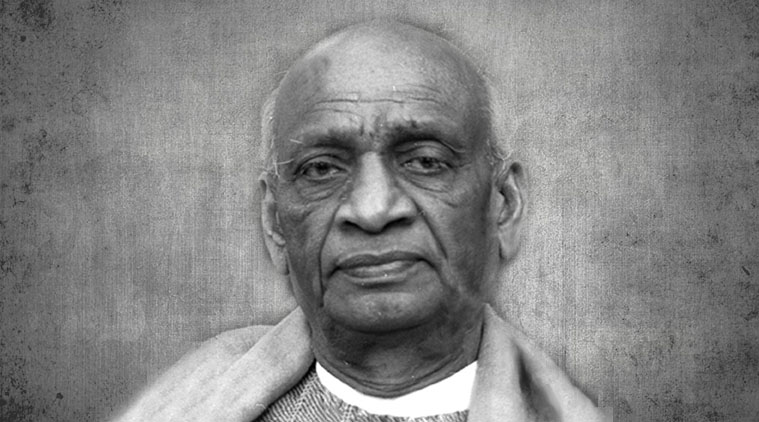 “Here, we are building a nation and we are laying the foundations of One Nation, and those who choose to divide again and sow the seeds of disruption will have no place, no quarter, here, and I must say that plainly enough.”
“Here, we are building a nation and we are laying the foundations of One Nation, and those who choose to divide again and sow the seeds of disruption will have no place, no quarter, here, and I must say that plainly enough.”
Sardar Vallabhbhai Patel, the first home minister of the independent India, played a key role in unifying and giving shape to the Indian Union. He brought the princely states under the Union of India. Few, however, know that he was one of the primary people involved in drafting the Indian Constitution.
Sardar Patel piloted important sections of the Constitution and introduced key provisions in the Constitution. The most important is the fundamental rights stated under the Constitution of India.
Fundamental Rights:
Patel headed the Advisory Committee set up by the Constituent Assembly on January 24, 1947. The Committee’s responsibility was to prepare an interim report on the fundamental and minority rights.
- Reasonable Restrictions (Article 19 (2-6)): Sardar Patel presented the first draft of the reasonable restrictions on April 30, 1947. Among the several amendments, one of them was the inclusion of protection of minorities, groups and tribes within the provision. Striving for equality, Patel accepted the amendment partly and suggested that amendment should be made to the clause after 10 years, by which time tribals would have risen to the equal status of other citizens and once that is achieved the word “tribes” could be eliminated from the provision.
“It is not befitting India’s civilisation to provide for tribes. What is the meaning of tribes. What is it that the word means, and is it so? It means something and it is there because, for two hundred years, attempts have been made by foreign rulers to keep them in groups apart with their customs and other things in order that the foreigners’ rule may be smooth. The rulers did not want that there should be any change. Thus, it is that we still have the curse of untouchability, the curse of the tribes, the curse of vested interests and many other curses besides. We are endeavouring to give them all fundamental rights. It should be our endeavour to remove these curses.”
- Citizenship: While drafting a law for dual citizenship, a question arose whether a person born in India, whose parents are foreign nationals, would receive Indian citizenship. On this point Patel’s words were, “ It is important to remember that the provision about citizenship will be scrutinised all over the world. They are watching what we are doing. This is a simple problem. We must always have a few foreigners coming here….If by the accident of birth, someone comes and stays here, subject to the proviso which we have enacted, we can control double citizenship by our legislation.”
This clause was adopted in the Constitution.
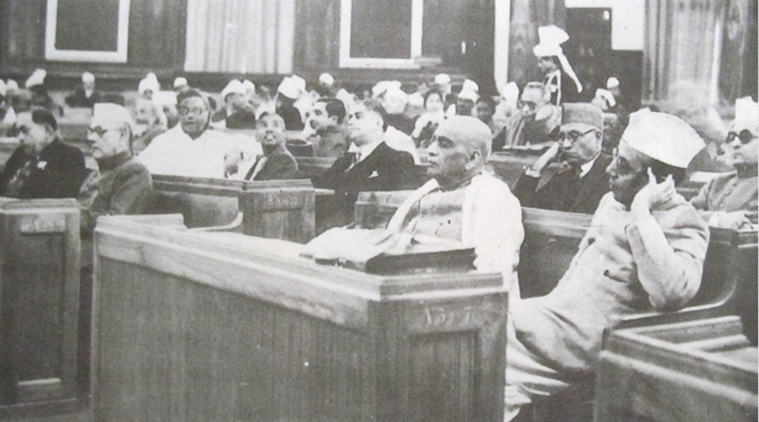 Indian Constituent Assembly in session in 1947.
Indian Constituent Assembly in session in 1947.
- Non-discrimination of citizens (Article 14): The issues relating to caste, communal, religion, sex, colour and dynastic discrimination were infecting the state even then. Patel introduced the right to non-discrimination of citizens on the above laid grounds and the clause provided complete access to public facilities like wells, tanks, roads and bathing ghats. While drafting this fundamental right, a notion was discussed to provide politicians with an exclusive non-discrimination right by way of inserting the words “political creed”. This meant that no citizen should discriminate against member of political parties for their political beliefs.
Opposing the inclusion, Patel said, “[I]t is an absurd idea to provide for non-discrimination as regards a political creed. Political creed may be of any kind. There may be some political creeds highly objectionable. Some may not be deserving of discrimination, but may actually be deserving of suppression.”
- Abolition of untouchability (Article 17): Sardar Patel strove to make the clause well formulated so that a call for amendment would not arise. Yet an amendment was sought for the insertion of “unapproachability” in the clause keeping in mind the conditions of places like Malabar. Patel opposed the amendment and said that the provision dealt with the removal of the idea of untouchability and to make it punishable by law. He further said that the provision dealt with untouchability in a comprehensive manner and “if untouchability is provided for in the fundamental rights as an offence, all necessary adjustments will be made in the law that may be passed by the Legislature.”
- Abolition of titles (Article 18): While drafting the provision, the matter relating to titles provided by imperialistic rulers arose and it was suggested that such titles should stand abolished. Patel said, “many titles have been surrendered during the last year or two and the titles have lost their value.”
He said the purpose of the provision was to prevent political parties from having “authority to give any inducements or to corrupt people in order to build up their party or to obtain or derive strength by unfair means.”
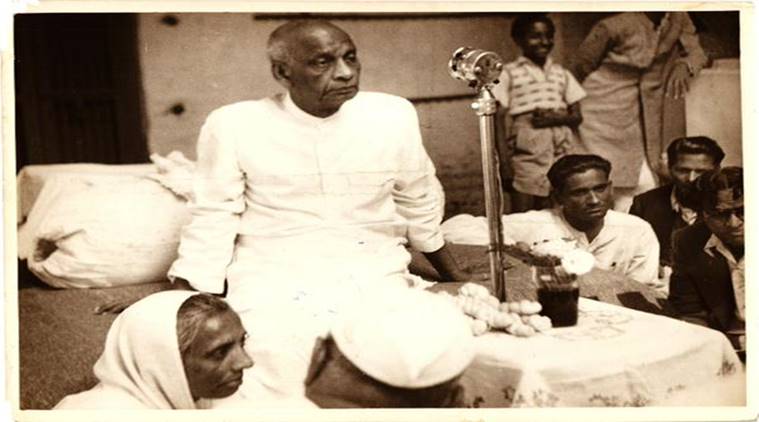 “But in the long run, it would be in the interest of all to forget that there is anything like majority or minority in this country, and that in India there is only one community.”
“But in the long run, it would be in the interest of all to forget that there is anything like majority or minority in this country, and that in India there is only one community.”
Minority Rights:
On August 25, 1947 the Advisory Committee was debating on separate and joint electorates and reservations of seats in legislatures and services for the minorities.
Sardar Patel stood his ground firmly in favour of joint electorates. Patel in his report classified minorities into three categories of tribes, Indian Christians & Sikhs and Muslims and scheduled castes.
Patel said: “Those who want that kind of thing have a place in Pakistan, not here….Here, we are building a nation and we are laying the foundations of One Nation, and those who choose to divide again and sow the seeds of disruption will have no place, no quarter, here, and I must say that plainly enough.”
After much debate, the idea of a joint electorate was accepted but the Committee did not stop pondering over it. By 1949 a common ground was established among the members of the committee, including Patel and it was felt that free India should not have reservations for minority communities apart from scheduled castes.
Patel resorted to bring equality to all and eradicate the concept of minorities. He believed that such classification was brought about by the imperial rulers to maintain balance between communities but the same had given birth to communal differences.
Patel said: “It is not our intention to commit the minorities to a particular position in a hurry. It is in the interest of all to lay down real and genuine foundations of a secular state, then nothing is better for the minorities than to trust the good-sense and sense of fairness of the majority, and to place confidence in them. So also it is for us who happen to be in a majority to think about what the minorities feel, and how we in their position would feel if we were treated in the manner in which they are treated. But in the long run, it would be in the interest of all to forget that there is anything like majority or minority in this country, and that in India there is only one community.”
- 01
- 02
- 03
- 04
- 05


